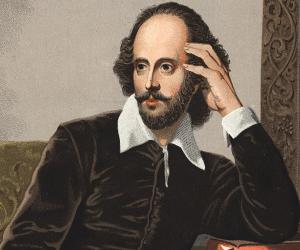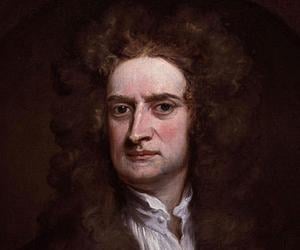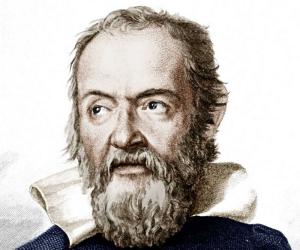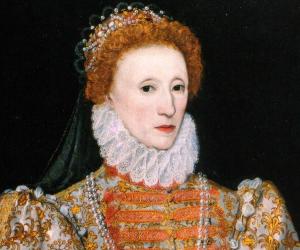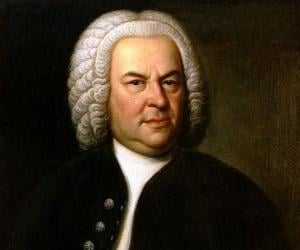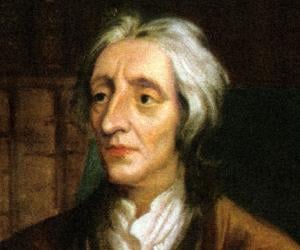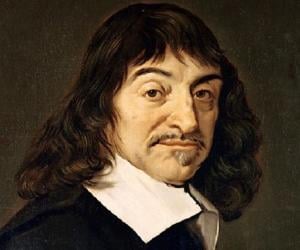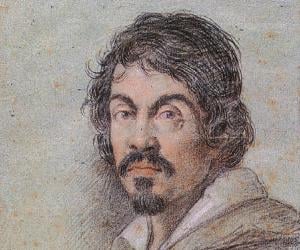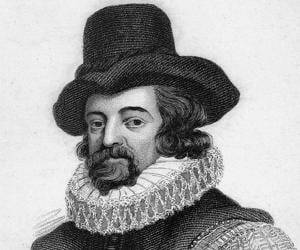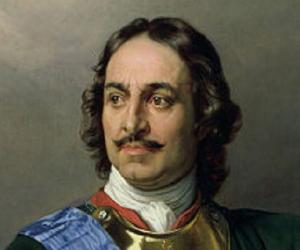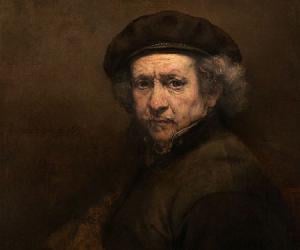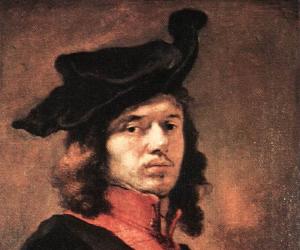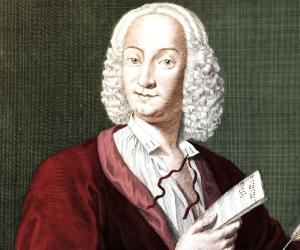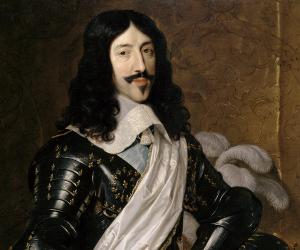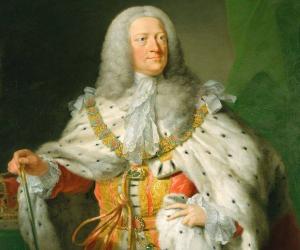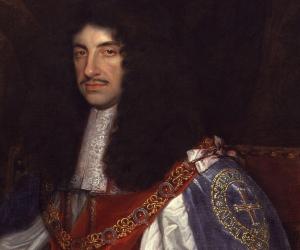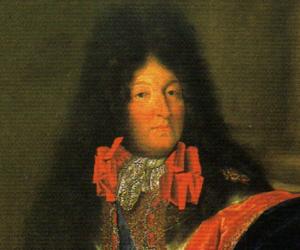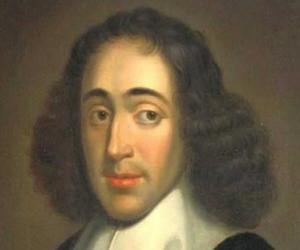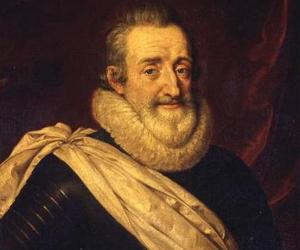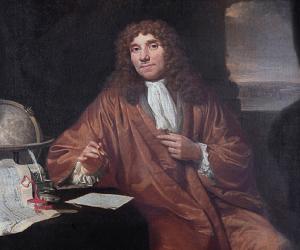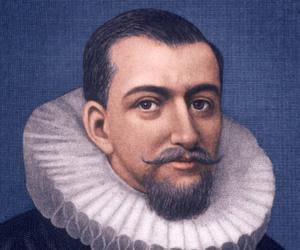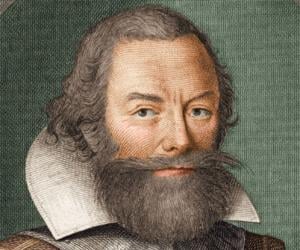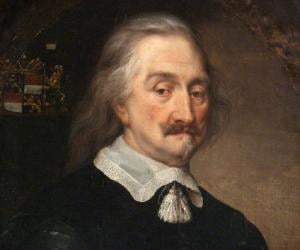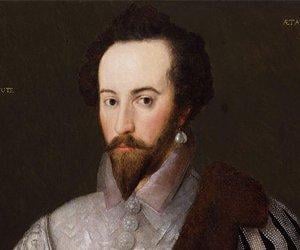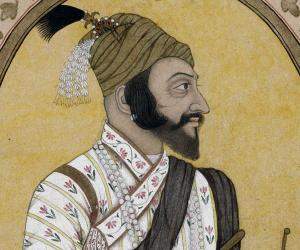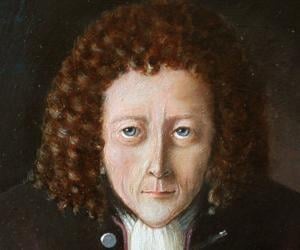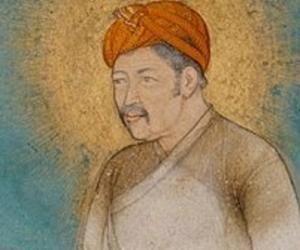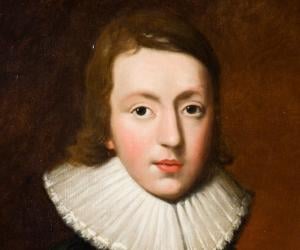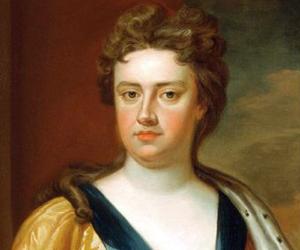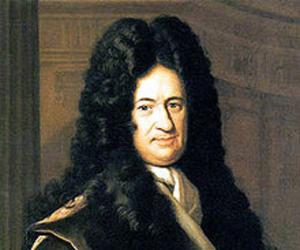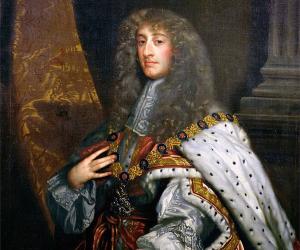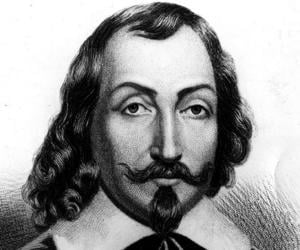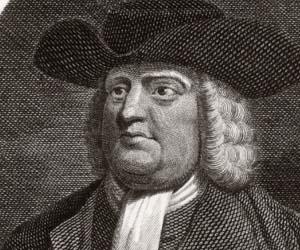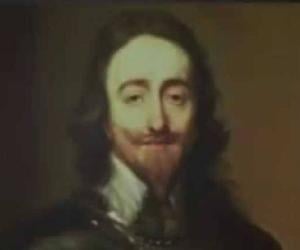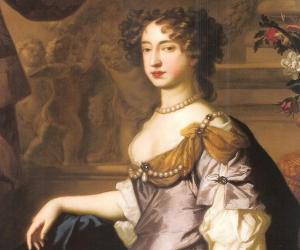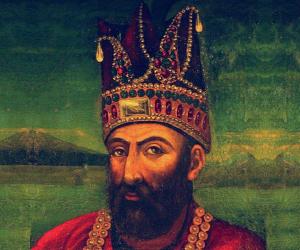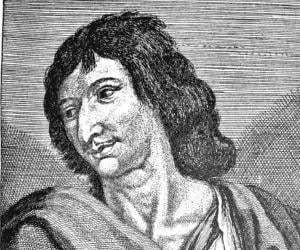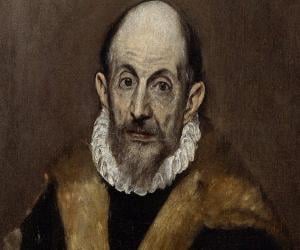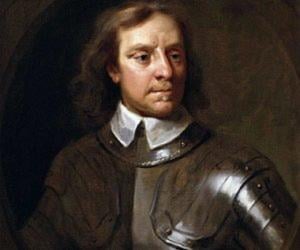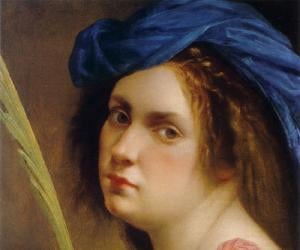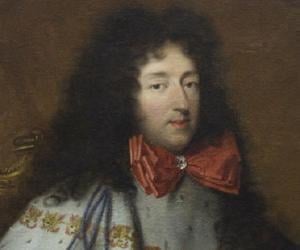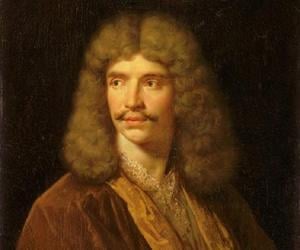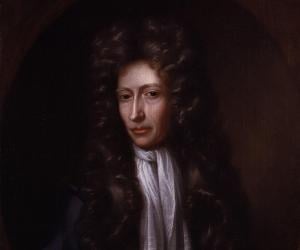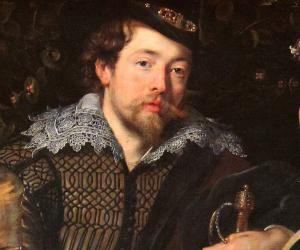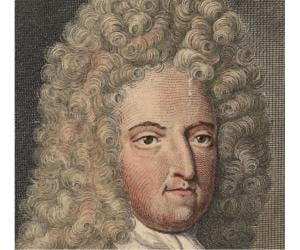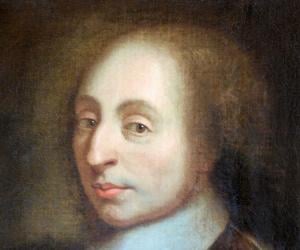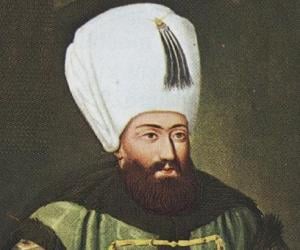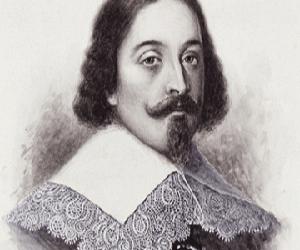Famous People Of The 17th Century
The 17th century was a politically chaotic period in almost all parts of the world. Several great military conflicts took place including the Thirty Years' War, the Great Turkish War, and the Dutch-Portuguese War which led to the emergence of military leaders like Gustav II Adolf and Axel Gustafsson Oxenstierna, and other important political personnel like John III Sobieski and Mehmed IV. European politics were majorly controlled by Louis XIV and the period marked in earnest the European colonization of the Americas. The 17th century was also an important one in the scientific field. It saw the birth of Blaise Pascal, the French mathematician, physicist, inventor, writer and Christian philosopher. Pierre de Fermat, Robert Hooke, Sir Isaac Newton, and Gottfried Wilhelm (von) Leibniz were also prominent scientists born in this era. The world of music and fine arts was enriched by the birth of the likes of Dieterich Buxtehude, Danish-German composer and Francesco Cavalli, Venetian opera composer. Artists like André Le Nôtre, Jan Steen, and Johannes Vermeer were also born in this era. Read on to learn more about the life and works of famous people of the 17th century.
Vote for Your Favourite People Of The 17th Century
Right IconThis ranking is based on an algorithm that combines various factors, including the votes of our users and search trends on the internet.
1
William Shakespeare(English Playwright & Poet Who is Regarded as the Greatest Writer in the English Language)
Birthdate: April 26, 1564
Sun Sign: Taurus
Birthplace: Stratford-upon-Avon, England
Died: April 23, 1616
English playwright, poet, and actor William Shakespeare is widely regarded as the greatest writer in the English language. He is also often called England's national poet. Many of his works have been translated into other languages and his plays continue to be produced till day. Popular during his lifetime, he acquired an iconic status after his death.
2
Isaac Newton(One of the Most Influential Scientists of All Time)
Birthdate: January 4, 1643
Sun Sign: Capricorn
Birthplace: Lincolnshire, England
Died: March 31, 1727
One of the most influential and popular scientists of all time, Sir Isaac Newton played a prominent role in our understanding of natural phenomena. He formulated the law of universal gravitation and laws of motion. He also developed the Newtonian telescope among other devices. Apart from science, Newton was also intrigued by religion, occult, and alchemy.
3
Galileo Galilei(Known as “Father” of Observational Astronomy who Invented the ‘Thermoscope’ and Various Military Compasses)
Birthdate: February 15, 1564
Sun Sign: Aquarius
Birthplace: Pisa, Italy
Died: January 8, 1642
An Italian astronomer, engineer, and physicist, Galileo Galilei is widely regarded as the father of observational astronomy, the father of the scientific method, the father of modern physics, and the father of modern science. He is credited with popularizing the telescope, which changed the course of history.
Birthdate: September 7, 1533
Sun Sign: Virgo
Birthplace: Palace of Placentia
Died: March 24, 1603
Elizabeth I, daughter of King Henry VIII and Anne Boleyn, ruled as the Queen of England and Ireland from 1558 to 1603. She had been declared illegitimate after her mother’s execution. Nicknamed The Virgin Queen for her unmarried status, she established an English Protestant church and served as its governor.
Birthdate: March 31, 1685
Sun Sign: Aries
Birthplace: Eisenach, Germany
Died: July 28, 1750
Johann Sebastian Bach was an 18-th century German composer of the Baroque period. He redefined both church and secular music. He served as the court musician of Duke Johann Ernst and King Augustus III. He created more than 300 cantatas and vocal music such as Mass in B minor.
6
John Locke(English Philosopher and Physician, Popularly Known as the ‘Father of Liberalism’)
Birthdate: August 29, 1632
Sun Sign: Virgo
Birthplace: Wrington, Somerset, England
Died: October 28, 1704
John Locke, also known as The Father of Liberalism, was a prominent Enlightenment Age philosopher. A qualified physician, Locke postulated the theory of mind, empiricism, and the idea of tabula rasa. His ideas influenced the social contract theory, the works of Kant and Rousseau, and the U.S. Declaration of Independence.
7
René Déscartes(French Philosopher, Mathematician and Inventor of ‘Analytic Geometry’)
Birthdate: March 31, 1596
Sun Sign: Aries
Birthplace: Descartes, France
Died: February 11, 1650
René Descartes, the father of modern philosophy, laid down the idea of rationalism, later followed by Spinoza and Leibniz. Descartes also contributed to the field of analytical geometry and led to the Cartesian coordinate system being named after him. His Meditations on First Philosophy is still taught at many universities.
8
Caravaggio(One of the Most Prominent Italian Painters of His Generation)
Birthdate: September 29, 1571
Sun Sign: Libra
Birthplace: Milan, Italy
Died: July 18, 1610
Italian painter Michelangelo Merisi da Caravaggio is best remembered for his influence on the Baroque style of painting. He pioneered a tactic known as tenebrism, and combined light and darkness to create his masterpieces. He was known for his erratic and aggressive nature and died under mysterious circumstances.
9
Francis Bacon(Philosopher, Statesman and Lord High Chancellor of England)
Birthdate: January 22, 1561
Sun Sign: Aquarius
Birthplace: The Strand, London, England
Died: April 9, 1626
Francis Bacon was a Renaissance philosopher and author who was known as the Father of Empiricism, because of his belief in the scientific method and theory that scientific knowledge can only be created through inductive reasoning and experience. He was later knighted and served as the first Queen's counsel.
Birthdate: June 9, 1672
Sun Sign: Gemini
Birthplace: Moscow
Died: February 8, 1725
Peter the Great ruled the Tsardom of Russia, and then the Russian Empire, from 1682 to 1725. He ushered in the Enlightenment and cultural revolution in Russia. He also strengthened the Russian navy and launched the Russo-Persian War. Saint Petersburg, the capital of Russia till 1917, was established by him.
11
Rembrandt(One of the Greatest Visual Artists in the History of Art)
Birthdate: July 15, 1606
Sun Sign: Cancer
Birthplace: Leiden, Netherlands
Died: October 4, 1669
Rembrandt was a Dutch printmaker, painter, and draughtsman. A master in three major art media, Rembrandt is widely considered the most important visual artist in Dutch art history and one of the greatest of all time. He is also considered the greatest etcher in the history of printmaking. His life and work inspired several films, including the 1936 movie Rembrandt.
Birthdate: October 31, 1632
Sun Sign: Scorpio
Birthplace: Delft, Netherlands
Died: December 15, 1675
Johannes Vermeer was a Dutch painter renowned for his use of light in paintings. Although he did not achieve fame during his lifetime, Vermeer's works gained popularity in the 19th century. Today, Vermeer is often counted among the greatest painters of the Dutch Golden Age. Over the years, Vermeer's work has inspired artists like Wilhelm Hammershoi and Thomas Wilmer Dewing.
13
Antonio Lucio Vivaldi(Baroque Composer & Virtuoso Violinist Known for His Violin Concertos 'The Four Seasons')
Birthdate: March 4, 1678
Sun Sign: Pisces
Birthplace: Venice, Italy
Died: July 28, 1741
Italian Baroque composer, virtuoso violinist, and teacher, Antonio Lucio Vivaldi, is regarded as one of the greatest Baroque composers. He was extremely popular during his lifetime and composed many instrumental concertos and operas. He was also a Roman Catholic priest and worked at a home for abandoned children. Even though he died in 1741, his music continues to be popular.
Birthdate: September 27, 1601
Sun Sign: Libra
Birthplace: Château de Fontainebleau, Fontainebleau, France
Died: May 14, 1643
Louis XIII of France reigned as the King of France between 1610 and 1643. He is best remembered for saving the kingdom from the mismanagement of his mother Marie de' Medici, who was exiled by a 16-year-old Louis XIII. He is also credited with popularizing wigs among men, which had not been fashionable since antiquity.
Birthdate: November 10, 1683
Sun Sign: Scorpio
Birthplace: Hanover, Germany
Died: October 25, 1760
George II was the king of Great Britain from 1727 to 1760. He had negligible control over his country’s policies, as the Parliament took most of the significant decisions back then. His participation in the 1743 Battle of Dettingen made him the last British monarch to fight in a battle.
16
Charles II(King of England, Scotland and Ireland from 1660 to 1685)
Birthdate: May 29, 1630
Sun Sign: Gemini
Birthplace: St James's Palace, London, England
Died: February 6, 1685
Charles II, son of King Charles I of England, ruled England, Scotland, and Ireland from 1660 to 1685. He was initially defeated by Oliver Cromwell and forced to go into exile, but returned to England after Cromwell’s death. He introduced the Clarendon Code and later sided with the Tories.
Birthdate: December 27, 1571
Sun Sign: Capricorn
Birthplace: Weil der Stadt, Germany
Died: November 15, 1630
This 17th-century German mathematician, astronomer, and astrologer is remembered for his pathbreaking work on optics. He invented a developed version of the refracting telescope. He also laid down Kepler's laws of planetary motion and wrote Astronomia Nova, Harmonices Mundi, and Epitome Astronomiae Copernicanae.
Birthdate: September 5, 1638
Sun Sign: Virgo
Birthplace: Saint-Germain-en-Laye, France
Died: September 1, 1715
Louis XIV of France reigned as the King of France from 1643 to 1715. Louis XIV is the longest-reigning monarch of a sovereign country in the history of Europe. Under his rule, France often asserted its military prowess and emerged as the most dominant European monarchy. His life inspired several films, such as The Taking of Power by Louis XIV.
19
Baruch Spinoza(One of the Most Important Philosophers of the Early Modern Period)
Birthdate: November 24, 1632
Sun Sign: Sagittarius
Birthplace: Amsterdam, Netherlands
Died: February 21, 1677
Dutch philosopher Baruch Spinoza is best remembered for his rationalist ideas and his posthumously released book Ethics. He opposed Rene Descartes’s ideas and believed that God was an abstract entity. He was later expelled from the Jewish society, while his books were banned by the Catholic Church.
Birthdate: December 13, 1553
Sun Sign: Sagittarius
Birthplace: Pau, France
Died: May 14, 1610
Henry IV of France reigned as the King of France from 2 August 1589 until his death on 14 May 1610. Remembered for his concern about the welfare of the people of France, Henry worked to eliminate corruption, promote agriculture, encourage education, and regularize state finance. The character of Ferdinand in Shakespeare's Love's Labour's Lost was loosely based on Henry.
Birthdate: October 24, 1632
Sun Sign: Scorpio
Birthplace: Delft, Netherlands
Died: August 26, 1723
Seventeenth-century Dutch scientist Antonie van Leeuwenhoek, also known as the Father of Microbiology, is remembered as a pioneer of microscopy. His contribution to microbiology included the discovery of spermatozoa, bacteria, and muscle fibers. Though he had not authored any book, his letters to the Royal Society were later published.
Birthdate: 1565 AD
Birthplace: England, United Kingdom
Died: 1611 AD
Henry Hudson was an English navigator and sea explorer best remembered for his explorations of modern-day Canada and the northeastern United States. He is credited with laying the foundation for the Dutch colonization near the Hudson River, which is named in his honor. During his final expedition, he became the first European to witness the Hudson Bay and Hudson Strait.
23
Jonathan Swift(Satirist & Author of 'Gulliver's Travels',' A Tale of a Tub' and 'A Modest Proposal')
Birthdate: November 30, 1667
Sun Sign: Sagittarius
Birthplace: Dublin, Ireland
Died: October 19, 1745
Eighteenth-century essayist, poet, and pamphleteer Jonathan Swift is remembered for his iconic works such as A Tale of a Tub, A Modest Proposal, and Gulliver's Travels. One of the world’s greatest satirists, he gave rise to the deadpan Swiftian style. He had also been the Dean of St. Patrick's Cathedral.
Birthdate: January 6, 1580
Sun Sign: Capricorn
Birthplace: Lincolnshire, England
Died: June 21, 1631
John Smith was an English explorer, soldier, colonial governor, author, and Admiral of New England. In the early-17th century, Smith played a major role in the establishment of the first indissoluble English settlement in America, which came to be known as the English colony at Jamestown. Apart from helping Jamestown survive various challenges, Smith's leadership also helped the colony flourish.
25
Thomas Hobbes(English Philosopher and One of the Founders of Modern Political Philosophy)
Birthdate: April 5, 1588
Sun Sign: Aries
Birthplace: Westport, Wiltshire, England
Died: December 4, 1679
Thomas Hobbes was an English philosopher. Widely regarded as the co-founder of modern political philosophy, Hobbes is best known for his influential book Leviathan. Apart from political philosophy, Thomas Hobbes also contributed immensely to various other fields, such as ethics, theology, geometry, history, and jurisprudence.
26
Walter Raleigh(English Statesman, Soldier, Writer, Explorer and One of the Most Notable Figures of the Elizabethan Era)
Birthdate: 1552 AD
Birthplace: Hayes Barton,United Kingdom, United Kingdom
Died: October 29, 1618
English explorer Walter Raleigh is best remembered for his involvement in the Siege of Smerwick and for colonizing North America. He made smoking tobacco popular in England. His accounts of his first voyage to South America led to the legend of El Dorado. He was executed to please the Spanish.
Birthdate: February 19, 1630
Sun Sign: Pisces
Birthplace: Maharashtra, India
Died: April 3, 1680
Shivaji was an Indian warrior-king. He is credited with founding the Maratha Empire, which became a force to reckon with during the 18th century. He is also credited with creating his own navy. Considered one of the most important Indian kings and a hero of the Hindus, Shivaji's life and work have inspired several works of art, including films.
Birthdate: July 28, 1635
Sun Sign: Leo
Birthplace: Freshwater, Isle of Wight
Died: March 3, 1703
Scientist Robert Hooke, also called England's Leonardo, initially gained recognition as an architect, conducting surveys following the Great Fire of London. He also taught geometry and was part of the Royal Society. He assisted Robert Boyle and eventually developed his own microscope, thus becoming the first to visualize micro-organisms.
29
Akbar(3rd Emperor of the Mughal Empire (1556 - 1605))
Birthdate: October 25, 1542
Sun Sign: Scorpio
Birthplace: Umarkot, Pakistan
Died: October 27, 1605
Akbar, the third Mughal emperor, played an important role in inculcating Persian culture into the Indian subcontinent. Akbar is considered one of the most important rulers of the Mughal Empire, an empire that seeped foreign ideas and culture into medieval India, the effects of which are still visible in modern-day India, especially in the northern parts of the country.
30
John Milton(English Poet and Intellectual Known for His Epic Poem ‘Paradise Lost’)
Birthdate: December 9, 1608
Sun Sign: Sagittarius
Birthplace: Cheapside, London, England
Died: November 8, 1674
John Milton was an English poet whose epic poem Paradise Lost is widely regarded as one of the greatest works of literature. Milton's other celebrated work Areopagitica is counted among history's most impassioned and influential defenses of freedom of the press and freedom of speech. John Milton’s works have influenced other prominent writers, such as Thomas Hardy and George Eliot.
Birthdate: February 6, 1665
Sun Sign: Aquarius
Birthplace: St James's Palace, Westminster, England
Died: August 1, 1714
Many biographers consider Anne, the Queen of Great Britain, a weak and irresolute woman. It is said that she lacked political astuteness and was easily influenced by others. Though she was troubled by poor health throughout her life, she became increasingly obese and ill during her 30s and eventually died at the age of 49.
32
Gottfried W. Leibniz(German Mathematician Who Developed the Present Day Notation for the Differential and Integral Calculus)
Birthdate: July 1, 1646
Sun Sign: Cancer
Birthplace: Leipzig, Germany
Died: November 14, 1716
Gottfried Wilhelm Leibniz was a significant logician, mathematician, and philosopher of the Enlightenment era. He laid down his own concepts of differential and integral calculus. He was behind the invention of the mass-produced mechanical calculator and modified the binary number system. He also laid down a separate library cataloging system.
Birthdate: October 14, 1633
Sun Sign: Libra
Birthplace: London, England
Died: September 16, 1701
James II of England reigned as the king of Ireland, Scotland, and England from 1685 to 1688. His deposition as king, caused by the Glorious Revolution of 1688, ended a century of civil and political strife by establishing the principle that Parliament would be preferred over the Crown as opposed to the principles of divine right of kings and absolutism.
Birthdate: August 13, 1574
Sun Sign: Leo
Birthplace: Hiers-Brouage, Marennes-Hiers-Brouage, France
Died: December 25, 1635
Samuel de Champlain was a French colonist, navigator, draftsman, soldier, and explorer who made between 21 and 29 trips across the Atlantic Ocean. He founded Quebec and New France and is considered an important figure in Canadian history. He is also referred to as the "Father of New France." As a businessman, he founded many trading companies.
Birthdate: October 14, 1644
Sun Sign: Libra
Birthplace: London, England
Died: July 30, 1718
William Penn was a writer and one of the earliest members of the Quakers. He is credited with founding the Province of Pennsylvania. He also oversaw the planning and development of the city of Philadelphia. Penn has several universities and schools named in his honor, including the William Penn University in Iowa.
Birthdate: November 19, 1600
Sun Sign: Scorpio
Birthplace: Dunfermline Palace, Dunfermline, Scotland
Died: January 30, 1649
Charles I, the King of England, Scotland and Ireland from 1625 to 1649, was said to be authoritarian and was in constant battle with the Parliament over the issue of royal prerogative. The friction led to a civil war from 1642 to 1645 between him and the English and Scottish Parliaments. He was defeated and executed in 1649 for treason.
Birthdate: April 30, 1662
Sun Sign: Taurus
Birthplace: London, England
Died: December 28, 1694
Mary II of England was Queen of England, Ireland, and Scotland from 1689 to 1694. Although she co-reigned along with her husband William III of England, she also took major decisions by herself whenever William was abroad. Mary has been portrayed in films, such as Orlando and England, My England.
Birthdate: October 22, 1688
Sun Sign: Libra
Birthplace: Dargaz, Iran
Died: June 19, 1747
Nader Shah reigned over Iran as the Shah of Iran from 1736 until his death in 1747. He is widely regarded as one of the most powerful rulers in the history of Iran. He has also been described as the Napoleon of Persia, thanks to his military genius, which was evident in his several campaigns.
Birthdate: March 6, 1619
Sun Sign: Pisces
Birthplace: Paris, France
Died: July 28, 1655
Seventeenth-century author and duelist Cyrano de Bergerac was immortalized by Edmond Rostand’s drama Cyrano de Bergerac, based on Bergerac’s life, with its mix of myth and reality. Even Bergerac's death is shrouded in mystery, with some claiming he died of an injury and others believing he died of a disease.
40
El Greco(Greek Painter, Sculptor and Architect of the Spanish Renaissance)
Birthdate: October 1, 1541
Sun Sign: Libra
Birthplace: Heraklion, Greece
Died: April 7, 1614
Artist Doménikos Theotokópoulos never let anyone forget his Greek heritage and almost always signed his art in Greek letters. Popularly known as El Greco, he was a significant figure of the Spanish Renaissance. His best-known works remain The Burial of the Count of Orgaz and The Assumption of the Virgin.
Birthdate: April 25, 1599
Sun Sign: Taurus
Birthplace: Huntingdon, Huntingdonshire, Kingdom of England
Died: September 3, 1658
The Lord Protector of the Commonwealth of England, Scotland, and Ireland, Oliver Cromwell was a military leader and a devoted Puritan who belonged to an affluent landowning family. During the English Civil War, Cromwell fought against King Charles I and caused the deaths of at least 3,000 soldiers and civilians.
Birthdate: July 8, 1593
Sun Sign: Cancer
Birthplace: Rome, Italy
Died: 1652 AD
Italian Baroque painter Artemisia Gentileschi was a prominent artist of the 17th century. She was the first female member of the Accademia di Arte del Disegno and was known for her depiction of the female form. She was raped by painter Agostino Tassi and participated in a 7-month trial.
Birthdate: September 21, 1640
Sun Sign: Virgo
Birthplace: Saint-Germain-en-Laye, France
Died: June 9, 1701
Philippe I, Duke of Orléans received the dukedoms of Chartres and Valois in 1661 as the younger son of Louis XIII of France. Unlike most royal persons of his generation, Philippe was open about his homosexuality and did not think twice before acting effeminately in public. However, he fathered several children and earned the nickname the grandfather of Europe.
44
Moliere(French Playwright and One of the Greatest Writers of French Comedy)
Birthdate: January 15, 1622
Sun Sign: Capricorn
Birthplace: Rue Saint Honoré, Paris, France
Died: February 17, 1673
Moliere was a French poet, playwright, and actor. Considered one of the greatest French-language writers of all time, Moliere's plays are often performed at the Comédie-Française and have been translated into several languages. Moliere had a huge impact on the French language and is widely regarded as the creator of modern French comedy.
Birthdate: January 25, 1627
Sun Sign: Aquarius
Birthplace: Ireland
Died: December 30, 1691
Robert Boyle was an Anglo-Irish chemist, natural philosopher, inventor, and physicist. Regarded as the first modern chemist, Boyle is often counted among the founders of modern chemistry. One of the pioneers of the scientific method, Robert Boyle is also remembered for his books, including The Sceptical Chymist, which is viewed as a keystone book in chemistry.
46
Peter Paul Rubens(One of the Most Influential Artists of the Flemish Baroque Tradition)
Birthdate: June 28, 1577
Sun Sign: Cancer
Birthplace: Siegen, Germany
Died: May 30, 1640
Peter Paul Rubens is considered the most influential artist of the Flemish Baroque tradition. He lived during the Dutch Golden Age. His style of art emphasized movement, color, and sensuality. He painted altarpieces, portraits, landscapes, and history paintings and also drew cartoons for the Flemish tapestry workshops. He was a classically educated humanist scholar as well.
Birthdate: 1660 AD
Birthplace: London, England
Died: April 24, 1731
Daniel Defoe was an English trader, pamphleteer, and spy, who is best remembered for his 1719 novel Robinson Crusoe. He also helped in popularizing the novel format of writing in Britain. He was a forerunner of business journalism, too, and also traded in hosiery, woollen goods, and wine.
48
Blaise Pascal(One of the Greatest Mathematicians of All Time Who Invented the Mechanical Calculator)
Birthdate: June 19, 1623
Sun Sign: Gemini
Birthplace: Clermont-Ferrand, France
Died: August 19, 1662
Blaise Pascal was a French physicist, mathematician, philosopher, and inventor. A child prodigy, Pascal's work on projective geometry, at the age of 16 is commendable. He is one of the earliest inventors of the mechanical calculator, which he did when he was still a teenager. His work on probability theory influenced the development of social science and modern economics.
Birthdate: April 18, 1590
Sun Sign: Aries
Birthplace: Manisa, Turkey
Died: November 22, 1617
Ahmed I reigned as the Sultan of the Ottoman Empire from 1603 till 1617. He ended the Ottoman tradition of royal fratricide upon taking over the throne. He constructed the iconic Blue Mosque of Turkey. He also patronized art, especially calligraphy, and wrote poems under the pseudonym Bahti.
Birthdate: 1603 AD
Birthplace: Lutjegast
Died: October 10, 1659
Dutch explorer and Dutch East India Company merchant Abel Tasman was the first European to reach the shores of Tonga, New Zealand, Fiji, and Van Diemen's Land, the last of which was named Tasmania in his honor. His circumnavigation of Australia proved that it was a separate continent.
